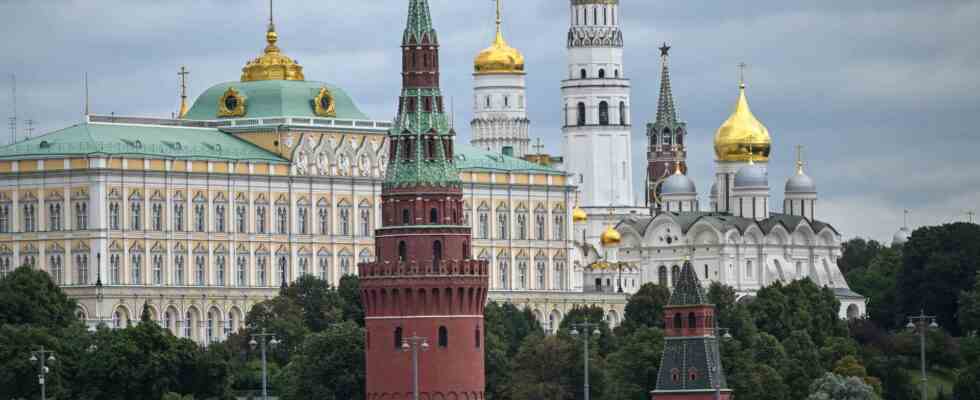Status: 09/21/2022 11:31 a.m
The Russian partial mobilization has been criticized internationally and at the same time interpreted as evidence that the invasion is about to fail. Dutch Prime Minister Rutte urged calm.
Criticism paired with a call not to be intimidated by Russia – this is how the first reactions to the partial mobilization announced by President Vladimir Putin are. Vice Chancellor Robert Habeck speaks of a “bad and wrong step”.
The decision to mobilize 300,000 reservists is a “further escalation of the illegal war of aggression against Ukraine,” which the federal government will discuss. For him and the government, it is “clear that we will continue to give our full support to Ukraine during this difficult time.”
“His invasion fails”
The British Defense Secretary took the partial mobilization as a sign that the “invasion was failing”. Ben Wallace explained that Putin and his Defense Minister Sergei Shoigu sent tens of thousands of citizens to their deaths. “No amount of threats and no amount of propaganda can hide the fact that Ukraine is winning this war, the international community is united and Russia will become a global outlaw.”
The US ambassador in Kyiv, Bridget Brink, said on Twitter: “Mock referendums and mobilizations are signs of weakness, of Russian failure.” The United States would never recognize Russia’s claim to allegedly annexed Ukrainian territory, “and we will stand by Ukraine for as long as necessary.”
Rutte: “keep calm”
The West should remain calm in the face of Russia’s “rhetoric about nuclear weapons,” Dutch Prime Minister Mark Rutte told NOS. The mobilization order is a sign of panic in the Kremlin, which should not be taken as a direct threat of full-scale war with the West. “We’ve heard his rhetoric about nuclear weapons many times, and it leaves us cold.”
Czech Prime Minister Petr Fiala also continues to support Ukraine: “The partial mobilization announced by Vladimir Putin is an attempt to further escalate the war that Russia has started against Ukraine. And it is further proof that Russia is the sole aggressor.” It is necessary to help Ukraine. “And in our own interest we must continue to do so.”
The step was to be expected, said Ukrainian presidential adviser Mykhailo Podoliak. The war is not going according to plan for Russia. The aim is to blame the West for the war and the deteriorating economic situation in Russia, Podoliak told Reuters news agency.
“Putin is on the defensive”
The security expert Markus Kaim from the Foundation for Science and Politics refers to the most recent military successes and recaptures by the Ukrainian army: “Some of the Russian war goals seem to be no longer achievable at the moment,” Kaim explained daily news 24. “President Putin himself has gone on the defensive.”
“The Russian leadership has gotten on the defensive”, Markus Kaim, Stiftung Wissenschaft und Politik, on the war in Ukraine
tagesschau24 09:00 a.m., 21.9.2022
From Kaim’s point of view, Putin is trying to put pressure on the West: “He talks about the nuclear weapons that he has at his disposal, he emphasizes that he would not bluff. He presents himself as an aggressive general. It’s definitely possible about influencing the political debate in Europe and the USA.”
The question is how united the traffic light coalition and the West, that is, NATO and the EU, will react to Putin’s speech beyond all rhetoric.
“Weakness, Not Strength”
The FDP foreign policy expert Alexander Graf Lambsdorff sees “weakness, not strength” in Putin’s announcements, as Lambsdorff wrote on Twitter.
The Greens politician Agnieszka Brugger also sees the partial mobilization and the announced referendums in the annexed areas as a sign of how much pressure the Russian president is under: “He can’t hide his own weakness with any amount of propaganda in Russia. That’s why let’s not let ourselves be scared now,” said Brugger.
The first reactions from the Union sound very similar: “Putin’s partial mobilization must not intimidate us, but shows Russia’s military weakness,” tweeted the CDU foreign policy expert Roderich Kiesewetter and warned again in this context that battle tanks must now be delivered quickly.

